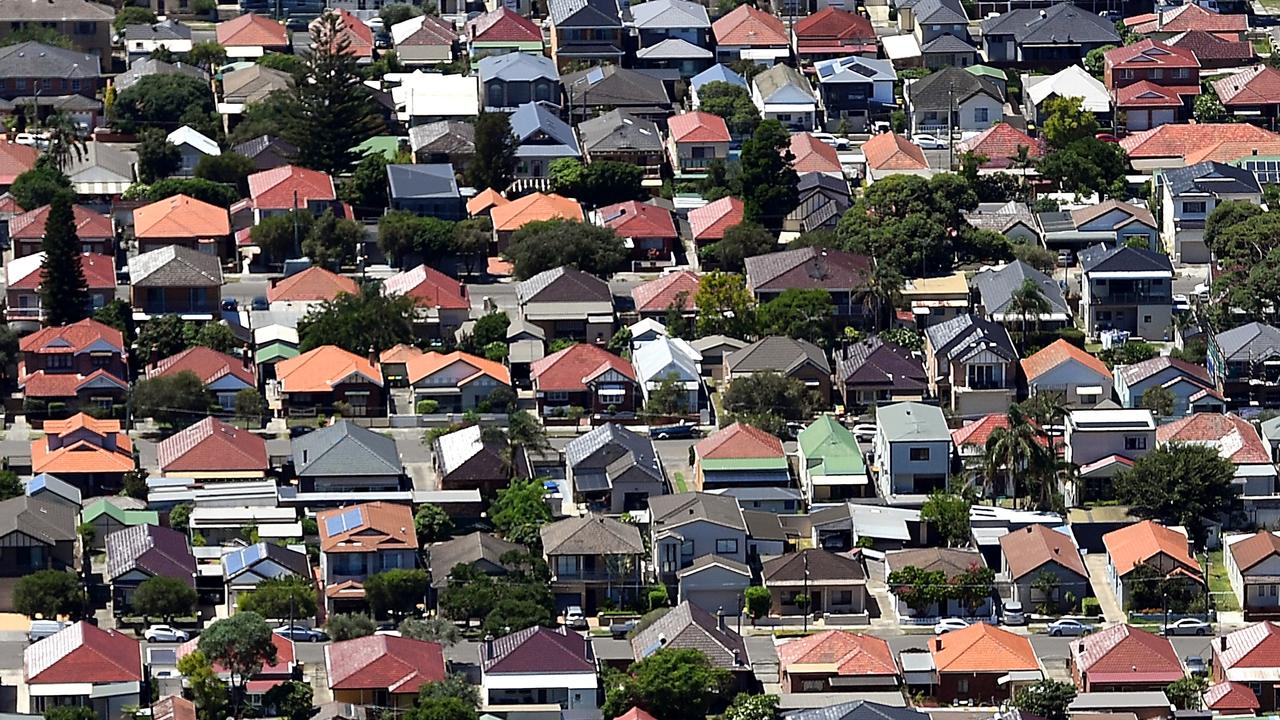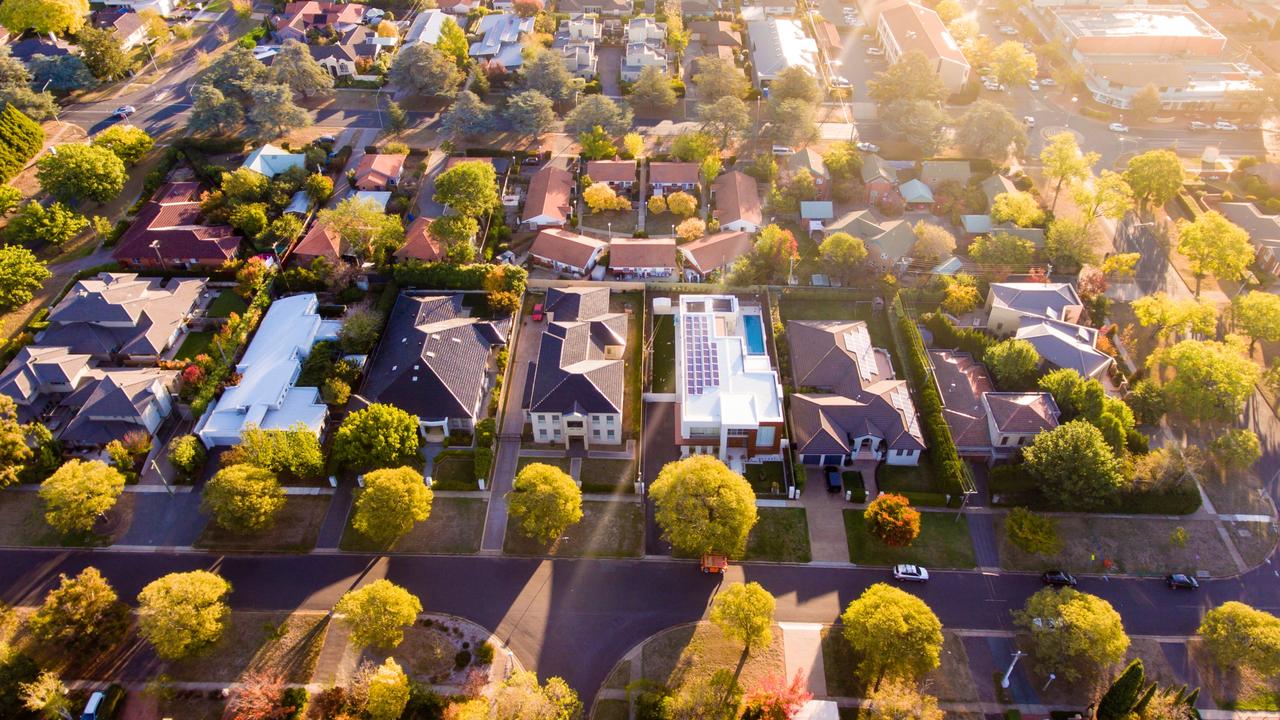Rent looms as key election issue as government attacks ‘big new housing tax’
An issue that plagued the government for years has been turned on its head amid claims “everyone who rents a house” will have to pay more.
An issue that once plagued the government — housing affordability — is now re-emerging as a critical election battleground.
It used to be a serious weakness for Scott Morrison. This time, he is using it as a weapon.
When he was treasurer, Mr Morrison came under intense pressure to wind back tax incentives that made it easier for existing homeowners to buy multiple properties. Even some of his own backbenchers openly called for it.
Labor went on the attack, vowing to limit negative gearing to newly built homes and halve the 50 per cent capital gains tax discount.
It claimed the government’s policies were giving investors an unfair advantage over first home buyers and overwhelmingly benefiting people with high incomes.
Now the politics have changed.

The dramatic fall in house prices over the past 18 months threatens to undermine Mr Shorten’s argument. And the government has pounced.
We got a preview of its strategy during Question Time yesterday, when Treasurer Josh Frydenberg used a question from his backbench to unleash a searing indictment of Labor’s housing policies.
The riff came with a blunt slogan Tony Abbott would be proud of — “a big new housing tax”.
“Those opposite have a plan for $200 billion of new taxes, including a big new housing tax,” Mr Frydenberg said.
“Today the Prime Minister and the Assistant Minister to the Treasurer and myself, we sat down with the Real Estate Institute of Australia, the Master Builders of Australia, the Property Council of Australia and other experts, and everyone shared their concerns about Labor’s new housing tax,” he said.
“The Master Builders Association said this could cost 32,000 jobs and see 42,000 fewer dwellings being built.
“Under the policy, everyone who owns a home will see it be worth less, and under that policy, everyone who rents a house will end up paying more.”
RELATED: What happened last time we messed with negative gearing
You can expect to hear the words “housing tax” a gazillion more times before election day.
Labor obviously rejects that assessment. It says its proposed changes are modest, and has accused the government of trying to scare Australians.
“It will not have the negative impact on prices that the people trying to oppose our current scheme are saying. Absolutely not,” Bill Shorten told Insiders earlier this month.
“First home buyers don’t get a fair deal.
“How is it fair that a couple in their twenties or thirties go along to bid for a house, and they’re competing against someone who is getting a taxpayer handout to buy the house as their sixth or seventh home?
“As usual with the government, if they’re given a choice between standing up for ordinary Aussies or standing up for the vested interest, they pick the vested interest.”

As usual, the truth probably lies somewhere in between the two parties’ positions.
But realestate.com.au’s chief economist, Nerida Conisbee, says there are real problems with Labor’s policies.
“When it was announced it made a lot of sense. We did have a problem in many of our big cities, there was too much property investment taking place, and the market was really shutting out first home buyers,” Ms Conisbee told news.com.au.
However a sharp drop-off in property investors since then has changed the situation.
“We’ve already kind of scared property investors off. They don’t like buying in falling markets. The sentiment has really slipped,” she said.
“The challenge I think for the policy now is that the policy modelling done by both sides has shown that Labor’s policy would lead to fall in prices and a rise in rents.
“They do need to think more broadly than saying first home buyers are locked out and this will help them, because they have already returned to the market.”
Politically, the prospect of higher rents could be Labor’s biggest challenge, because it undermines the argument that Mr Shorten is trying to help less wealthy Australians.
“On the one hand, people are worried about falling house prices, but the bigger problem is that in Australia we don’t have any backup plan for the supply of rental housing,” Ms Conisbee said.
“Given that mum and dad investors own almost all rental housing in Australia, if you have fewer of them buying, that will lead to a rise in rents.
“Renters tend to spend a higher proportion of their income on housing costs than someone with a mortgage. So they are far more sensitive to even quite moderate increases in rental costs.”
Labor tried to address this problem by announcing a new policy during its national conference in December.
It will offer investors who build new homes under 15-year subsidies, totalling $8500 per year, provided they lease the properties for 20 per cent below market rent.
The point is to help people on low and moderate incomes secure housing now, and simultaneously allow them to save more for their own homes in the future.
Will that be enough to ease the fears of renters, whom the government is about to bombard with dire warnings about higher rent?
We will find out in a few months.




